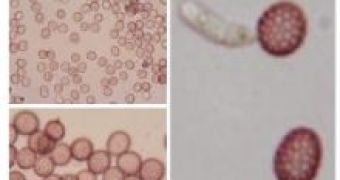Being more generous to close relatives is a common theme not only in human affairs but also in case of all living beings. From a "selfish" gene point of view this happens because close relatives share many genes and the genes inside each creature "care" about themselves and not necessarily about the particular individual carrying them. By being generous to a close relative an animal is actually generous to its own genes existing inside the relative.
But the "selfish" gene perspective has some very counter intuitive implications: the same that holds true for animals like ants (all the ants in a colony have the same genes and this is why the individual ants are willing to sacrifice themselves for the "greater good") should hold for highly primitive creatures such microbes. But it seems hard to believe that microbes could be generous to their relatives.
But now, in a paper from July issue of The American Naturalist, biologists Britt Koskella (Indiana University), Tatiana Giraud (Universit? Paris-Sud), and Michael Hood (University of Virginia) have shown that the same rules do indeed apply to disease-causing microbes.
They tried introducing a sexually-transmitted disease of plants, called "anther smut," into hosts that were already infected, and found that strains are more likely to share a host if they are more closely related!
In this way "pathogens seem to interact as we would," says Koskella, "sharing resources with close relatives and being more competitive towards non-relatives."
This discovery has plenty of implications because the competition among pathogen strains determines why some diseases cause very severe symptoms, "so it is crucial to understand when and how this competition occurs within the hosts," adds Koskella.
According to the evolutionary theory, to win host resources away from a non-relative, pathogens will increase exploitation of the host and thus cause more severe symptoms. However, if pathogens share the host more often with close relatives, this evolutionary conflict is decreased, possibly resulting in less harm by overexploitation.
Besides the fact that it confirmed a strange prediction of evolutionary theory, this study offers new insights into how pathogens interact within the host and helps better understanding and confronting the harmful effects of diseases.
Photo credit: Malcolm Storey

 14 DAY TRIAL //
14 DAY TRIAL //